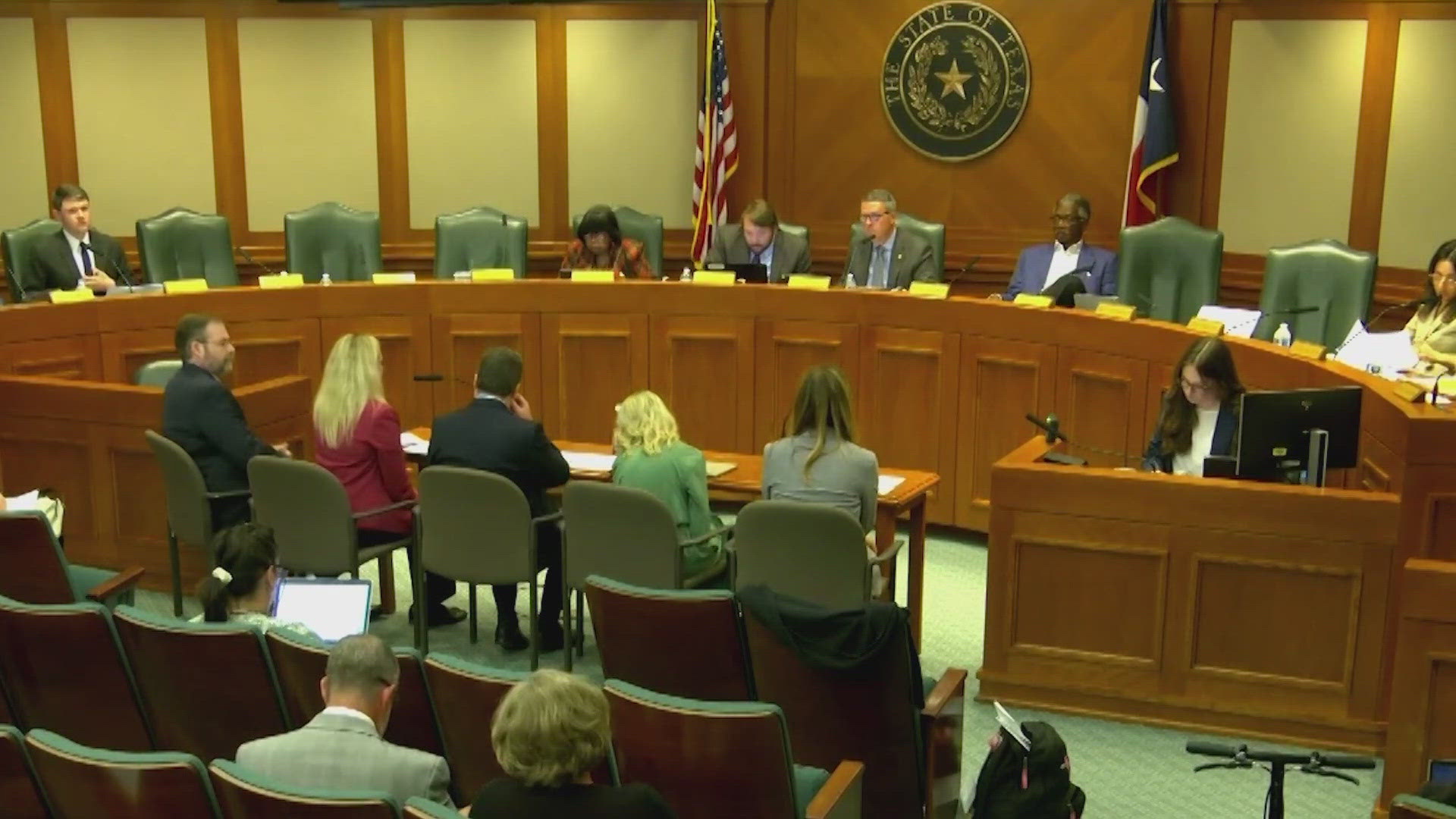DALLAS — A panel of school choice advocates mostly from outside of the state faced difficult questions in a House committee hearing on what was the first day of class for thousands of Texas schools.
School choice, educational savings accounts, and vouchers were not the only policy items on the agenda of a two-day meeting of the House Committee on public education - but they drew the biggest crowd.
Committee Chairman Brad Buckley, a Republican from Killeen, invited experts or advocates from Utah, Indiana, Arkansas and Florida to testify.
They described positive outcomes, even though several programs they spoke about are in their first or second year of implementation.
“Through the process of competitive pressure, private school choice generates a rising tide that lifts all boats,” testified Patrick Wolk, a professor of education policy and endowed chair in school choice at the University of Arkansas.
He said his research shows school choice works when states prioritize serving disadvantaged students and avoid “onerous regulations.”
“Requiring open admissions and mandating the administration of state accountability test leads many high-quality private schools to pass on participating in a choice program,” he told the committee. “Schools need to be able to apply their normal admission standards to students in school choice programs so they can be confident admitted students are prepared to thrive.”
Choice is a misused term, said Rep. Steve Allison, a Republican from San Antonio.
“It’s not the parents’ choice or the kids’ choice. It’s the private schools’ choice who they take or don’t take,” he said.
Gov. Greg Abbott’s school voucher push failed in the 2023 regular legislative session and in special sessions that followed. He then campaigned against Republicans who voted no on vouchers.
After several incumbents lost in the March primary, Abbott seemed confident he would have enough pro-voucher Republicans to pass a plan in 2025.
But there are still skeptics.
“When I hear this is good for all kids, I can show you 19 counties where it isn’t gonna help a damn one of them,” said Republican Rep. Ken King from the Panhandle.
“I never oppose a parents’ right to choose and I think there’s a way to solve this,” he said – but argued about the value to rural districts where there is no private school option.
“It makes it a little hard for me to vote for another part of the state and leave mine underfunded,” he said.
The expert panel came from states that don't come close to matching Texas in population or size.
“I do think it’s curious that we didn’t invite anyone from Arizona where news just broke that they’re facing a $1.4 billion budget shortfall because of their new voucher program,” said State Rep. James Tallarico, a Democrat from the suburbs of Austin.
He criticized the hearing as an “infomercial” and said the only people programs like vouchers or educational savings accounts help are wealthy families who are already sending their kids to private schools.
To dispute that claim, Republican Brian Harrison of Waxahachie asked Wolf about his research.
“In a sense, a universal school choice program levels the playing field for low-income families,” Wolf said.
“Absolutely, it would help the poor a lot more than the rich,” Harrison said.
The hearing’s timing was also criticized by some because few families, teachers, or administrators could attend due to the start of a new school year.

